 National High-Tech Enterprise
National High-Tech Enterprise
 WhatsApp
WhatsApp
 Pyrolysis Plant For Sale from TOP Manufacturer
Pyrolysis Plant For Sale from TOP Manufacturer
 National High-Tech Enterprise
National High-Tech Enterprise

 July 7, 2025
July 7, 2025Plastic decomposition machines, primarily utilizing pyrolysis technology, transform non-recyclable plastic waste into valuable products through decomposition in an oxygen-limited environment. These products offer significant economic and environmental benefits, with growing market demand and strong policy support. Here’s a breakdown of the main products:
During plastic decomposition, long-chain polymers such as polyethylene (PE), polypropylene (PP), and polystyrene (PS) are broken down into dark-colored liquid hydrocarbon mixtures, known as pyrolysis oil. Pyrolysis oil from plastic decomposition typically has a calorific value ranging from 35 to 40 MJ/kg. It is commonly used as fuel for industrial boilers, heavy oil generators, and steel factory. In countries facing fossil fuel shortages or with strict waste-to-energy policies, pyrolysis oil is in high demand. Pyrolysis oil can also be refined into diesel by waste oil refining machines, which can be used as a fuel for diesel generators, marine engines and heavy machinery. According to market research reports, the global pyrolysis oil market is expected to grow at a compound annual growth rate (CAGR) of over 5% in the coming years. The Asian-Pacific region is anticipated to dominate the market due to the high volume of plastic waste generated and increasing governmental initiatives for waste management in countries like China, India, and Japan. North America and Europe are also expected to witness substantial growth, driven by stringent environmental regulations and the presence of key market players.
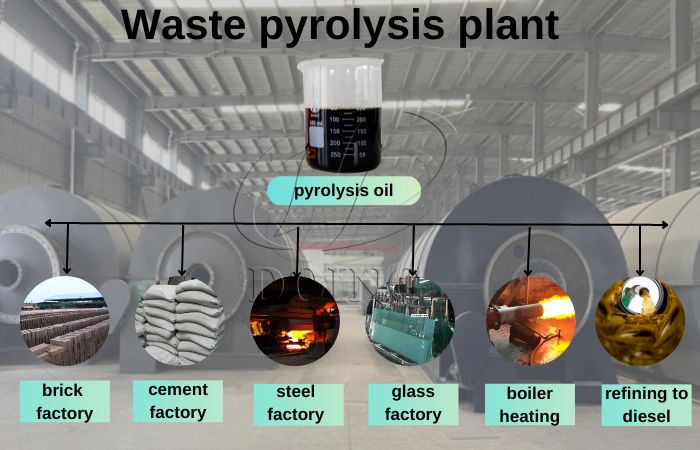
Applications of plastic decomposition products pyrolysis oil
The light gases produced during the pyrolysis process, which do not condense during cooling, include methane, ethane, hydrogen, carbon monoxide, and others. The gas yield generally represents 10%-15% of the total output. These gases can be used as fuel to heat the pyrolysis reactor, reducing external energy consumption.
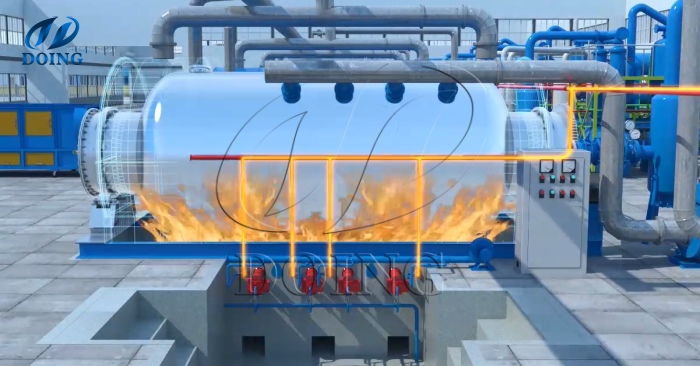
Syngas from plastic decomposition is recycled for combustion
Carbon black is the solid residue generated during pyrolysis, with a yield of approximately 15%-20% of the total output. High-quality carbon black can be further processed and then applied in activated carbon production. Additionally, carbon black can be used as a pigment or filler in the rubber, plastic, and construction industries. It can also be processed into fuel briquettes. With the continuous growth of the global rubber and plastic markets, the demand for carbon black is also on the rise. According to industry statistics, the global carbon black market size is expected to reach tens of billions of dollars in the coming years.
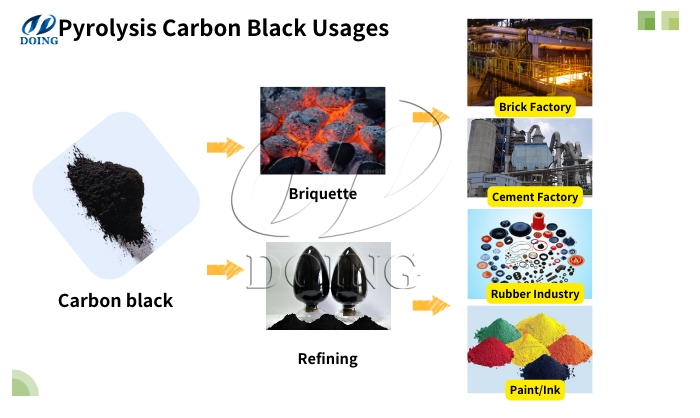
Applications of plastic decomposition product carbon black
When processing plastic-coated metals like cables and electronic waste, the pyrolysis process yields recovered metal wires or particles, with a recovery rate of approximately 15%-20%. These metals can be sold as scrap or reprocessed. Notably, if aluminum-plastic composites are processed, the proportion of aluminum in the output is relatively high. This aluminum can be sold as scrap metal at a higher value or repurposed for applications such as aluminum alloy production, manufacturing aluminum profiles, or producing beverage cans.
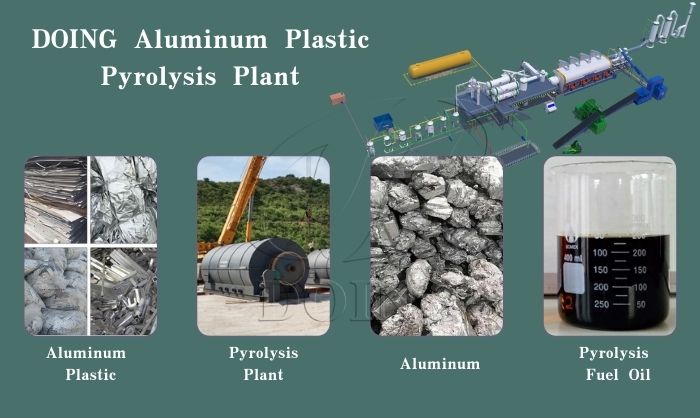
DOING aluminum plastic decomposition machine
Policy Support: Many countries have introduced policies to encourage the development of plastic decomposition technology. For example, the European Union has set strict standards for reducing plastic waste and emissions, promoting the adoption of plastic pyrolysis oil solutions.
Research Funding: Some governments have increased research funding to support the development of plastic decomposition technology. Universities and research institutions have conducted extensive research on pyrolysis technology, improving its efficiency and environmental performance.
Infrastructure Development: To promote the application of plastic decomposition technology, some countries have strengthened related infrastructure development. For example, constructing pyrolysis plants and waste collection and transportation systems helps improve the efficiency of plastic waste processing and provides favorable conditions for the large-scale application of plastic decomposition technology.
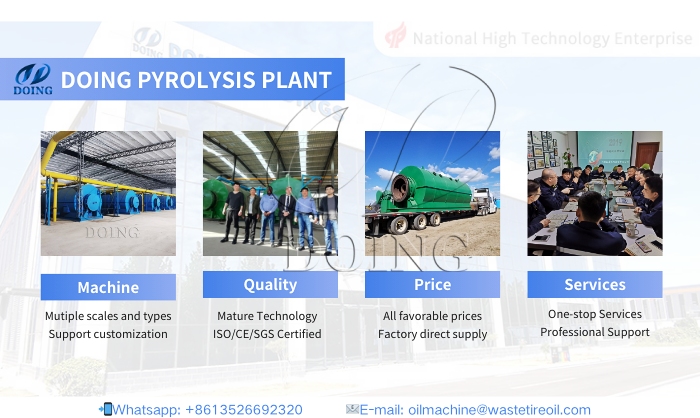
DOING waste plastic decomposition machine manufacturer
Plastic decomposition machines are powerful tools in addressing plastic waste pollution. They produce multiple valuable products, offering both economic benefits and environmental protection. We look forward to working with you to jointly explore the potential of plastic decomposition machines.
Please feel free to leave your contacts here and your privacy is protected. A competitive quotation will be provided according to your detailed requirement within one business day.